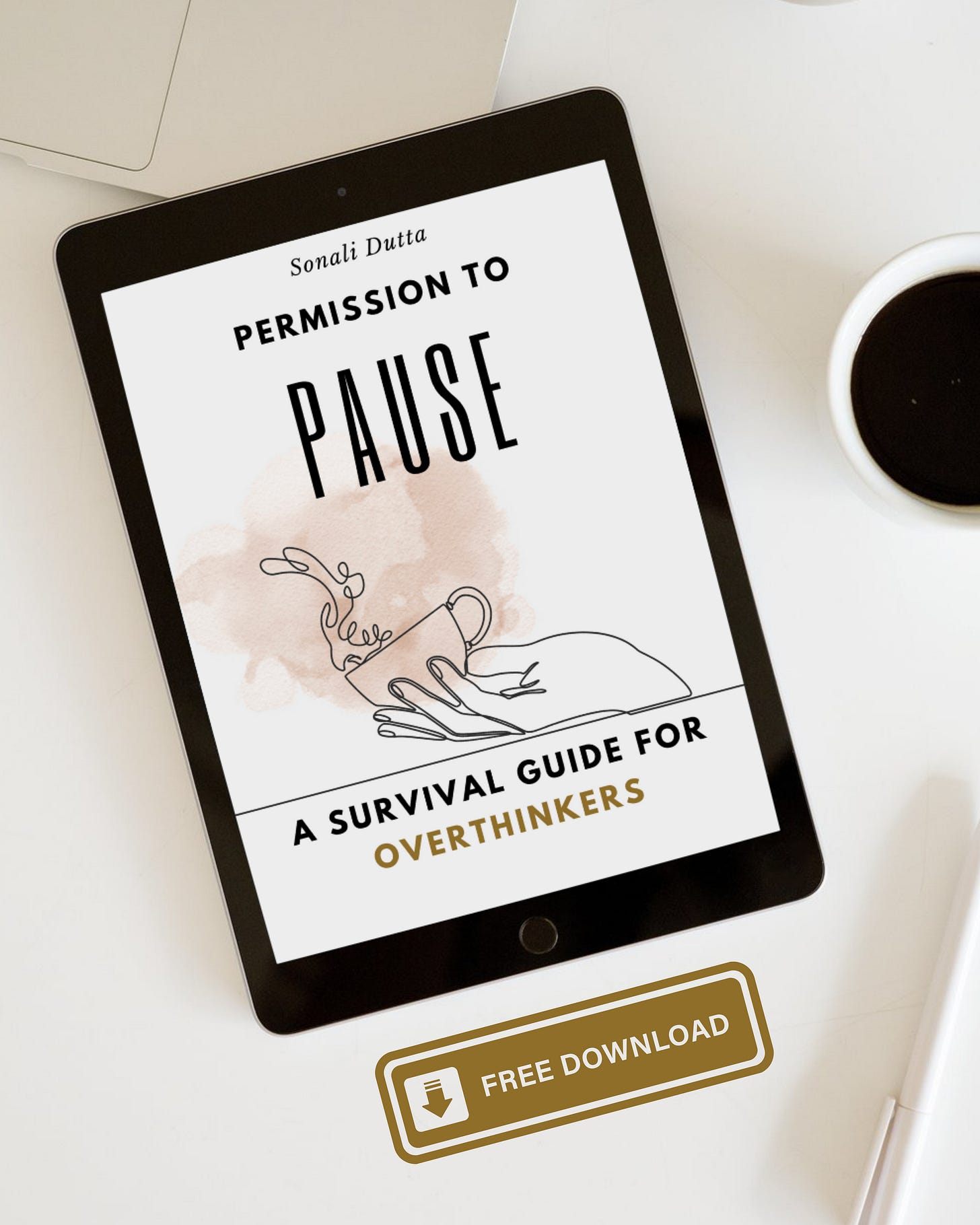Perfection Is a Scam - it is Just Fear in a Fancy Suit
The best things in life are raw, real, and slightly chaotic. Just like you.
I speak for a living. You’d think I’d have it all figured out by now.
Yet, before every session—whether it’s a topic I’ve spoken on a hundred times, a deck I personally designed, or an audience I know will be warm and welcoming—I get nervous.
It doesn’t matter if it’s virtual, in-person, or hybrid. It doesn’t matter if it’s ten people or a packed auditorium.
My heart pounds so hard I feel it in my mouth. My hands sweat. My brain races. I try not to show it, but inside, I’m buzzing with a mix of excitement and anxiety.
I love this. I love the rush. But I also want to get it right.
And yet, no matter how well I prepare, something always feels ‘off’ to me.
Maybe I forgot to crack that perfect joke that would’ve lightened the mood.
Maybe I missed an example or story that would’ve made a point sharper.
Maybe I went too fast at one point or too slow at another.
There’s always something I could have done better.
But here’s the interesting part—others don’t see any of this.
They see confidence, ease, and connection.
After nearly every session, someone walks up to me and says, “I wish I could speak like you.” Or, “You have so much courage. The way you connect with an audience is incredible.”
What looks like imperfection to me is inspiring to someone else.
The Perfection Myth We Grew Up With
We chase perfection because we were trained to.
It was instilled in us from childhood, disguised as a virtue.
School taught us there was always a perfect answer—a perfect score, a perfect method, a perfect way to be measured. And so we learned to see our efforts through the lens of whether they met an external standard.
But did anyone ever stop to ask us, What does perfect even mean?
Rarely were we encouraged to interpret, to create, or to define success on our own terms.
Creativity wasn’t measured — Accuracy was.
And so we grew up believing that perfection was a universal, objective truth—when in reality, it’s just an illusion we all see differently.
Your Perfect is Not Mine (And That’s Okay)
Perfection is subjective. It’s a sliding scale, constantly shifting based on who’s looking at it.
To me, a ‘perfect’ speech might be one where I remember every joke, time my pauses flawlessly, and never stumble over a word.
But to someone in the audience, perfection might simply mean feeling understood, learning something new, or feeling seen in my words.
What I consider average, someone else might consider mind-blowing.
What I consider unfinished, someone else might see as brave.
What I consider messy, someone else might find deeply relatable.
Perfection often has a measurable standard only in things that are tied to numbers—like sales targets, exam scores, or financial goals.
But in creative work, communication, relationships, or even personal growth, perfection doesn’t exist as a fixed point. It exists in the eye of the beholder.
{FREE} DOWNLOAD HERE
Messy is More Real Than Perfect
Messy is human.
Messy is relatable.
Messy is what makes you, YOU.
When we obsess over perfection, we often stop ourselves from doing things entirely.
We don’t share our work. We don’t take risks. We don’t raise our hands or speak up because what if it’s not good enough?
But in waiting for perfection, we miss the chance to improve. To evolve. To be seen.
“Excellence does not require perfection.” - Henry James
What if perfection is just a fear of judgment in disguise?
What if it’s not about high standards, but about avoiding the discomfort of criticism?
Because when we say, “I can’t share this, it’s not perfect,” what we often mean is, “I don’t want to hear any negative feedback.”
And I get it—criticism stings. But the real skill to develop isn’t perfection; it’s filtration. Learning to differentiate between constructive feedback and noise.
Recognizing whose opinions matter and whose don’t. Accepting that not everyone will love what you do—and doing it anyway.
When we make peace with imperfection, we make peace with progress.
You’re Waiting for ‘Perfect’—Meanwhile, They’re Inspired by Your Drafts
P – Progress over Perfection: Keep moving forward instead of waiting to be flawless.
E – Embrace the Mess: Your raw, unfinished work has more power than you think.
R – Release the Fear: Perfectionism is often just disguised self-doubt.
F – Filter the Feedback: Learn to take what helps and ignore what doesn’t.
E – Experiment Boldly: Try, fail, tweak, repeat. That’s how growth happens.
C – Celebrate Small Wins: Perfection dismisses progress. Don’t let it.
T – Trust Your Impact: Someone, somewhere, needs exactly what you have to offer—imperfect and all.
Reflect & Rewrite
Now, I’d love to know from you:
Take a moment to reflect and write this down in your journal (or comment below or email me privately):
What’s one thing I’ve been holding back from sharing because it’s not ‘perfect’ yet?
Who am I afraid of being judged by, and do they really matter?
How can I redefine success in a way that allows me to create more freely?
Write back with your thoughts because I truly want to hear what you think!✨
Your Companion for Balance: The Digital & Printable Planner + Journal
Life can get overwhelming, and finding balance isn’t always easy. That’s why this Digital & Printable Planner + Journal was created—with love and intention—to help you slow down, reflect, and take charge of your work-life flow in a way that feels right for you.
And here’s the best part: it costs less than a cup of coffee!
This isn’t just a planner; it’s a way to gift yourself clarity and focus for 2025. Whether you’re someone who loves journaling or someone who needs a little nudge to get started, this is for you.
Check it out in my store and make this year the one where you truly honour your goals.
















